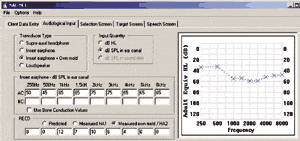Rep. Gus M. Bilirakis (R-Fla) introduced the Medicare Hearing Enhancement and Auditor Rehabilitation (HEAR) Act, (HR 1912) to the House April 18. The legislation is designed to help seniors better afford hearing aids and other auditory rehabilitation services.
Medicare is specifically prohibited from paying for hearing aids by federal law. The new legislation would repeal this prohibition and direct the Secretary of Health and Human Services to develop coverage policies based on other federal hearing aid programs, such as those currently offered by the Department of Veterans Affairs and Department of Defense through its Tricare health program. HR1912 also would provide Medicare coverage for auditory rehabilitation services so that Medicare beneficiaries can receive needed ongoing care to optimize their hearing with the use of a hearing aid.
“We must begin a national discussion on how to help seniors afflicted with hearing loss or impairment, especially with more and more baby-boomers suffering from this condition becoming Medicare-eligible,” Bilirakis says. “As an American with hearing loss, I understand all too well the frustrations associated with this condition. It makes good sense to help those who suffer from hearing impairment better afford devices, treatments, and services that will improve their quality of life.”
The American Speech-Language-Hearing Association (ASHA), Rockville, Md, applauded Representative Bilirakis for introducing HEAR, and states that HR1912 would provide Medicare coverage for hearing aids and auditory rehabilitation services for seniors with hearing loss. “Congressman Bilirakis has demonstrated vital leadership in advancing this important discussion on Medicare’s role in hearing loss among American seniors,” says Dennis Burrows, PhD, executive director of the Constance Brown Hearing Centers in Kalamazoo, Mich, and ASHA Executive Board member. “The Medicare HEAR legislation recognizes the critical value of providing auditory rehabilitation services from qualified professionals, such as audiologists, in addition to the hearing aids themselves,” Burrows says. “Without auditory rehabilitation services, consumers will not get the full benefit of their hearing aids.”
“ASHA has a leading, abiding, and very active commitment to making help like that addressed by the Medicare HEAR Act accessible to the public,” ASHA President Noma Anderson, PhD, says. “We applaud Congressman Bilirakis for introducing such important legislation. ASHA looks forward to working closely with him on making hearing aids and auditory rehabilitation services more available to our seniors who need them.”
The bill will encounter the challenge of being introduced in a time when fiscal restraint is a buzzword in Washington. Additionally, it has been pointed out by several hearing care and industry experts that Medicare coverage would almost certainly require fundamental changes in the way in which most dispensing audiologists conduct business and bill for their products and services. To see the original legislation, visit: http://www.govtrack.us/congress/billtext.xpd?bill=h110-1912.




